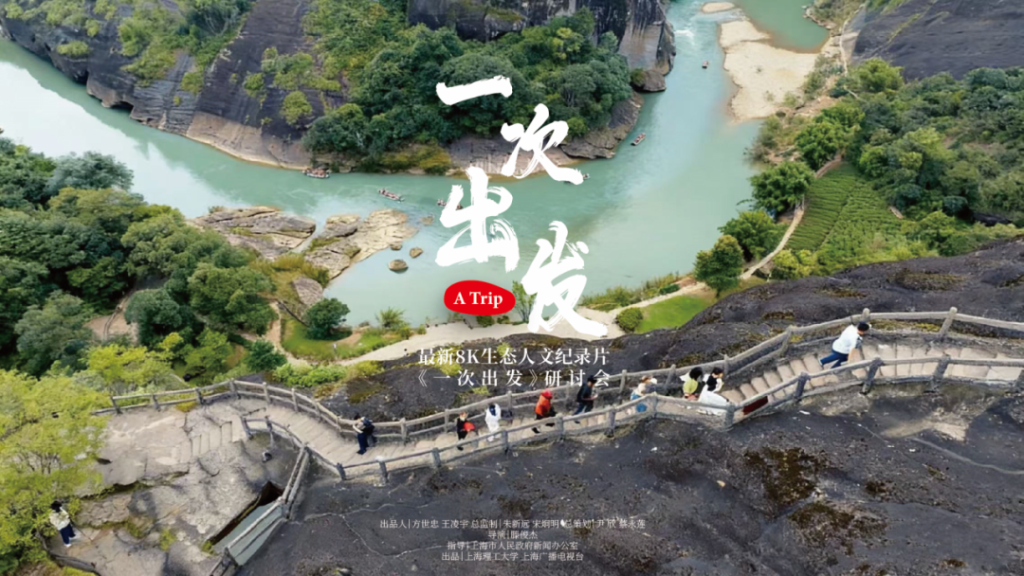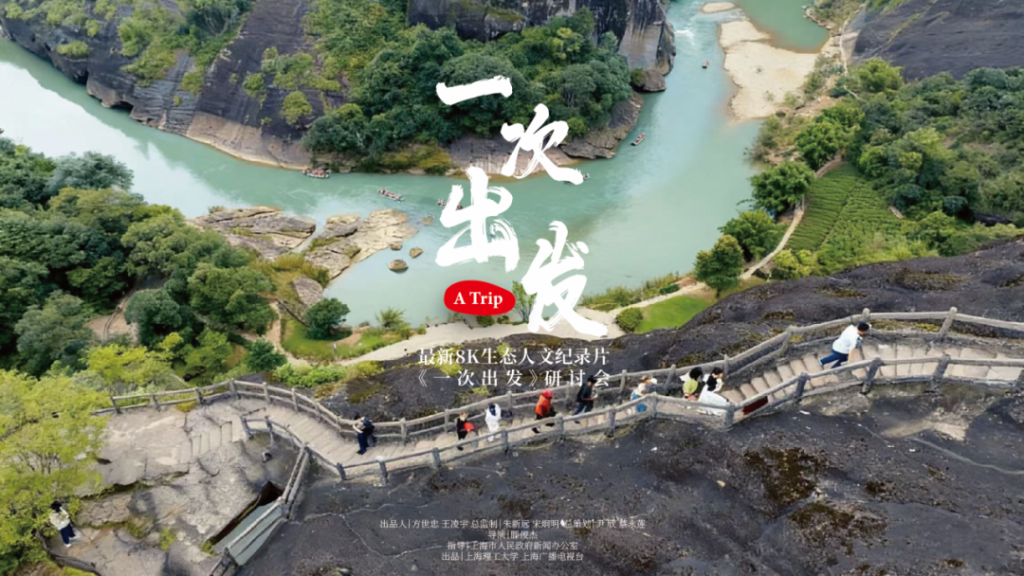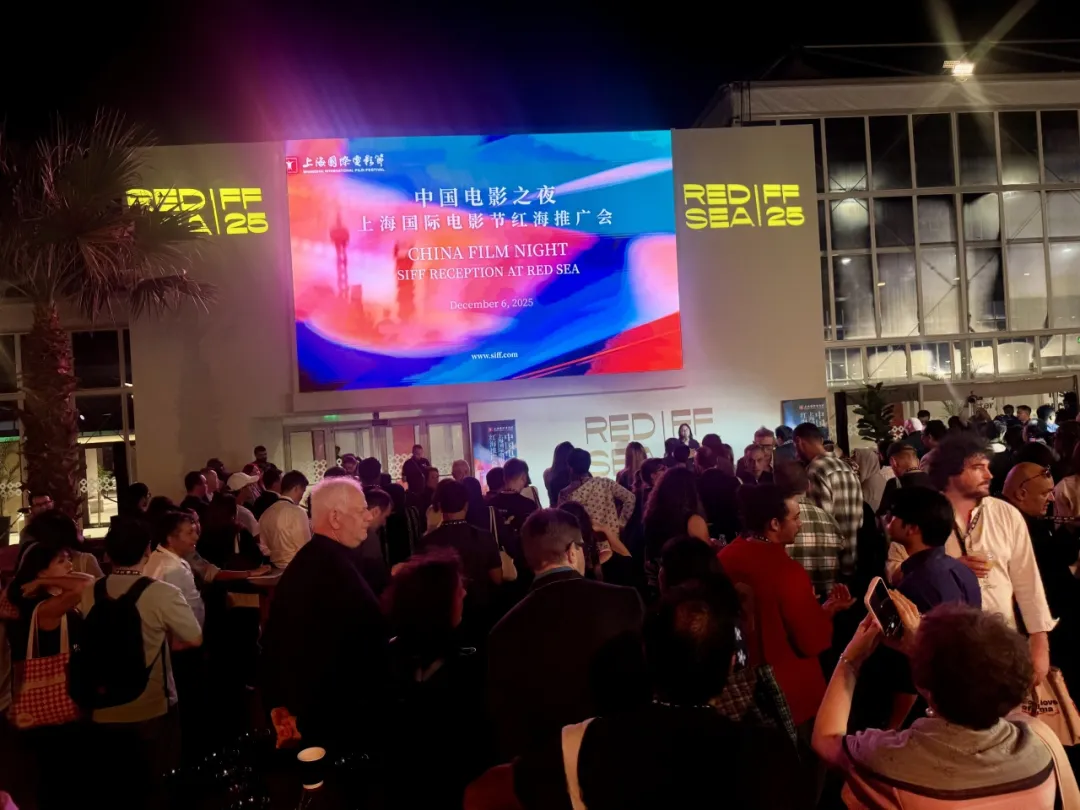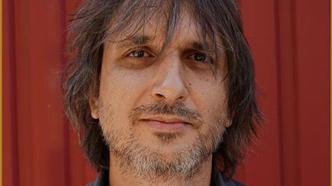
Atanas Georgiev entered the film industry as an editor. During his more than 20 years of professional career, he has constantly worked hard to explore the film world, contacted all aspects of the industry, and tried different roles such as director, producer, and sound designer.
He believes that to test whether a film is good or not, it is not only about how wonderful it is when watching the film, but also how long the audience remembers it after watching the film and the degree of post-fermentation, which will more convincingly demonstrate the value of the film.
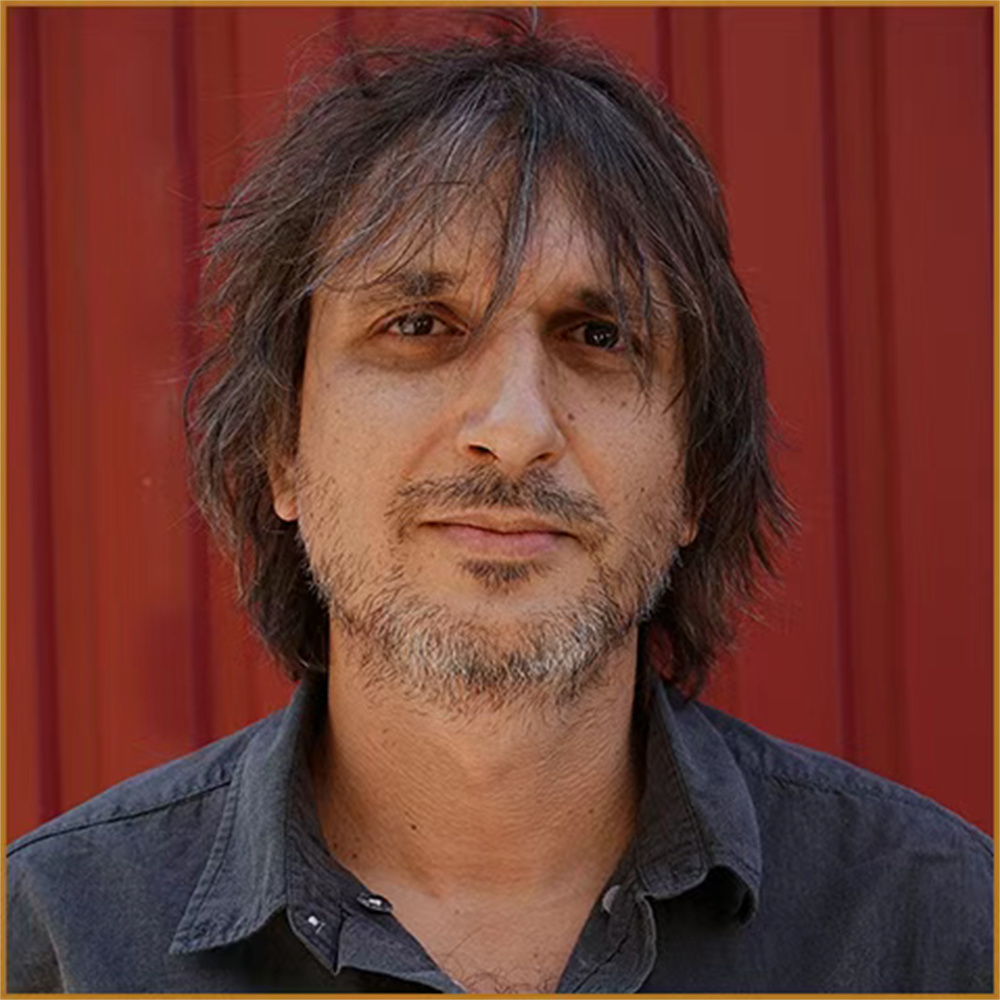
Atanas Georgeyev
He is the producer and editor of the famous documentary "Honeyland" (Honeyland, 2019). "Honey Land" has won more than 70 awards worldwide. It is the first film to win three major awards at the Sundance Film Festival at the same time. films and Best International Film.
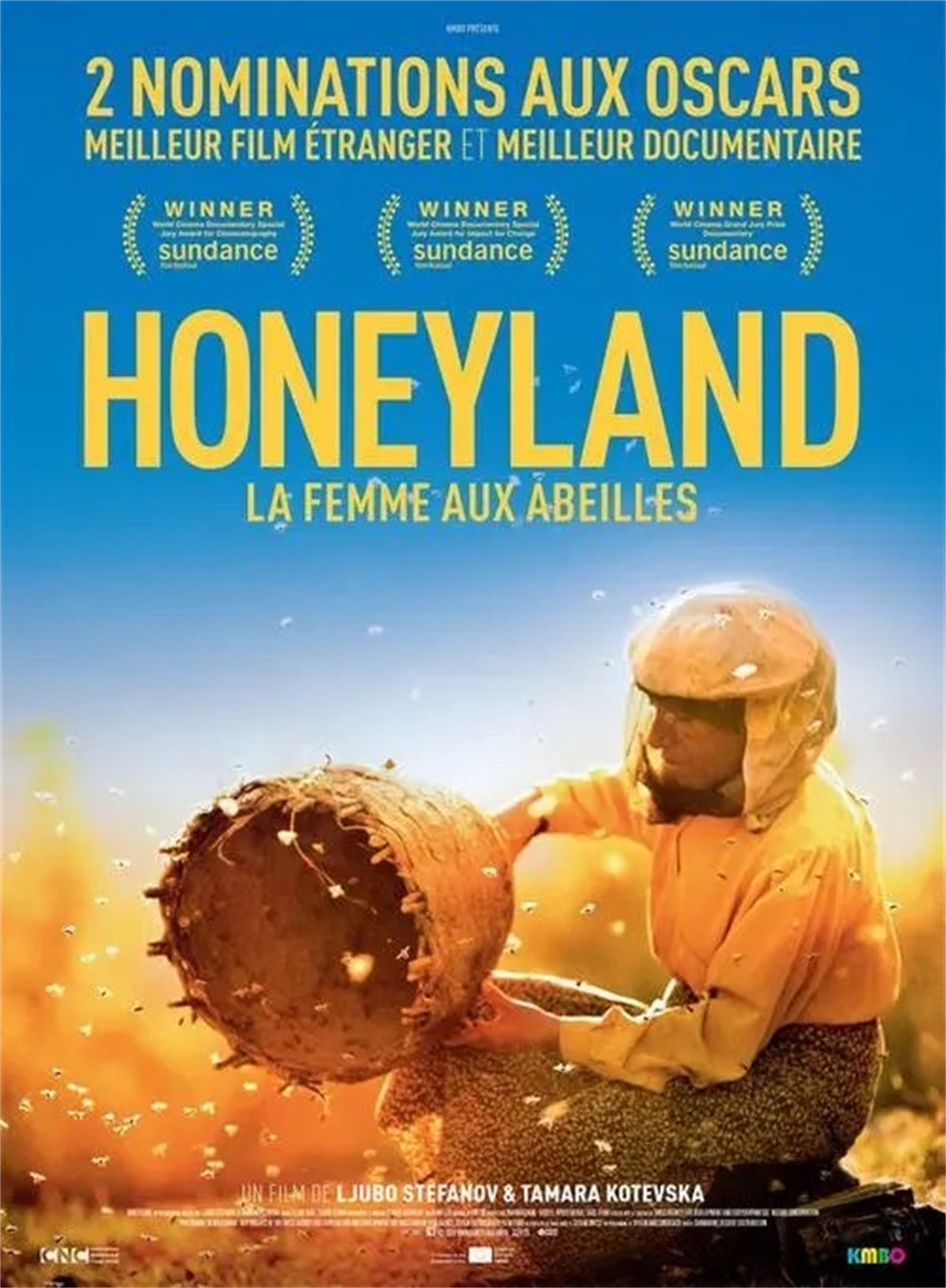
"Honeyland" poster
He is also a member of the Academy of Motion Picture Arts and Sciences (AMPAS) and the European Film Awards (EFA). Jury member of Moscow International Film Festival, Karlovy Vary International Film Festival and Macedonian Creative Documentary Film Festival. Distinguished Professor of Ohrid Film Academy (FIOFA).
Atanas Georgyev will serve as a member of the jury for the documentary unit of the Golden Goblet Award at the 25th Shanghai International Film Festival in 2023. On June 12, The Paper interviewed Atanas Georgyev in an exclusive interview, and started a dialogue around various problems encountered in documentary editing, production and post-production of documentaries.
【dialogue】
The Paper : What are your criteria for selecting documentaries? Do you have any favorite Chinese documentaries before?
Atanas Georgyev : First, look at the message conveyed by this documentary; second, what kind of aesthetic way it conveys the message; third, it is the emotional play in the film, how does it The personality of the whole character is played out in emotion; in the end, it depends on its impact on society, not just a small area, but a possibility that can affect the whole society.
There is a Chinese short film "The Moon and 4 Million Pounds" (Happiness is 4 million pounds) that was nominated for an Oscar. At that time, I voted for it as a member of the Oscar jury. I also like "Returning Train" directed by Fan Lixin. I don’t remember the name of another film, which also entered the Oscar two years ago. It was shot by a Chinese director living in the United States. The film mainly shows the cultural and economic development of contemporary China. It uses a very perfect, Show it off in an impressive way. I don't think it is a critical film, we learned a lot of new things from it, and we were able to observe the changes that this film brought to society.
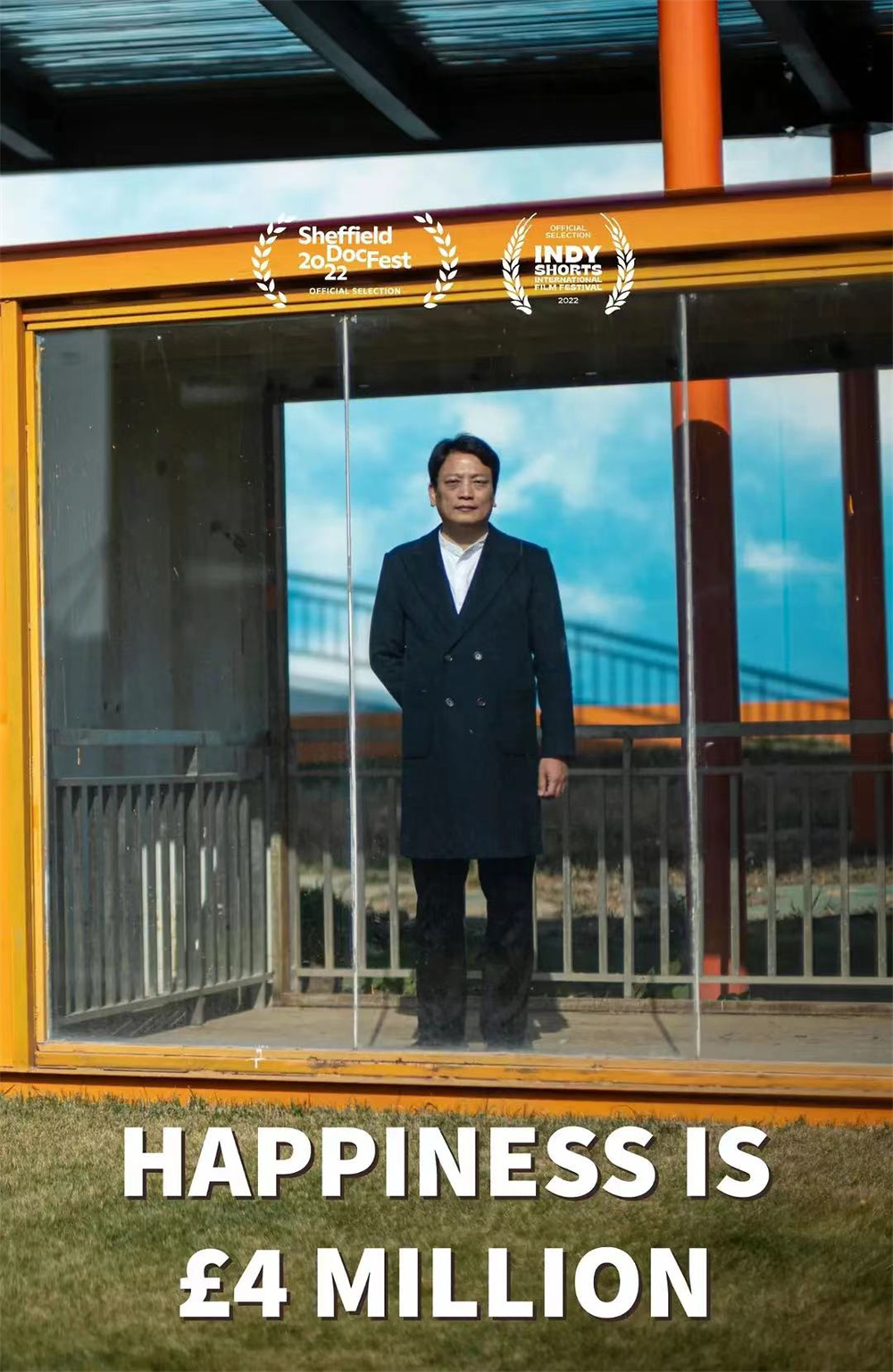
The Moon and Four Million Pounds poster
The Paper : Why did you become an editor?
Atanas Georgyev : I am a student of editing. I think film editing is a very serious art. The art of editing is a reflection of the overall quality of a film, more like a handicraft. During the filming process of the entire film, the editor is the first person who comes into contact with the entire creation. He has more creative ideas reflected in the film. Editing is a very important part of the narrative of the entire film. There is no doubt that the birth of a film work is finally completed in the hands of the editor.
For all the materials of the same movie, one hundred editors will have one hundred or even more story lines, so this is a very creative job, and I am passionate about it. In my heart, I very much agree that this is a noble profession, because not everyone has the patience to sit down and spend such a long time looking at the material over and over again to modify it. It requires your patience and enthusiasm.
Another point of interest for me is that editors and visual directors complement each other. They will definitely communicate closely, not only about the material itself, but also about the director’s personal thoughts and hobbies. I also like this communication process very much.
The Paper : What kind of documentaries do you prefer?
Atanas Georgyev : As a professional editor, I don't first look at the subject matter. First of all, the most important thing is to see which director to cooperate with. This may be more important than the subject itself. I pay more attention to the message that the director wants to convey through this film, his aesthetic and conveying methods, as well as his motivation and goal in choosing this subject.
The Paper : From the perspective of editing, what do you think documentary directors need to do most for the post-production, or what is the most effective part that can be left for the post-production?
Atanas Georgyev : Before shooting, the director must have a very clear idea and vision. He is very clear about how he wants to shoot, and has a very clear direction for the overall story, instead of thinking while shooting.
It must be explained here that it does not mean that the more materials they leave for editing, the better, because sometimes too much material may be more difficult to handle.
The director should be aware that the editor should be involved in the entire shooting process at a very early stage, especially in the early stage of script development, so that the editor can participate in the planning of the script as early as possible, and the director can help the editor to find the script more quickly. focus.
Especially after some clips are shot, experienced editors can immediately recognize which parts the film already has and which parts are missing. So, in a word, the sooner the editor is allowed to enter, the better.
The Paper : But many directors have a strong ego. If they enter the filming process early and there are disputes, what should we do?
Atanas Georgyev : I personally dislike arguments and I don't like them happening. So I say the most important thing is that I communicated perfectly with the director in the early stage, and I can fully understand what they think. Editing is not a machine. An editor must understand a lot of emotional expressions, have comprehensive control, and have a lot of overall structure. Only if the premise is a good communication mechanism can the post-production work be smooth.
This is a bit like a short-term marriage. Everyone has to sign a prenuptial agreement to understand each other's needs. Only on the basis of mutual understanding can we advance better. We should go both ways, if not, I would not accept such a job.
The Paper : If the theme style of a documentary is "poetic", it is difficult to enter materials full of humor, but humorous materials are often difficult to abandon. How to better integrate materials of different styles? What is its neat "switch"?
Atanas Georgyev : In fact, the humor element is a very important element for any story, and it is very difficult to find this balance.
It is possible to find 5 clips and insert this element in 5 different ways, but only 1 of them is perfect. So, like a mosaic puzzle, from the top down, it must have a comprehensive consideration, what is the most perfect "switch", that is, we must consider the layout of the entire movie, find a suitable entry point, In particular, what is the purpose of this film to convey?
The job of an editor is not a pencil, but an eraser to erase a lot of unnecessary material. It must be noted here that it is not necessarily correct to put the best material in the film, the best material must be put in, it is just balanced, and the post-production must be grasped according to the whole.
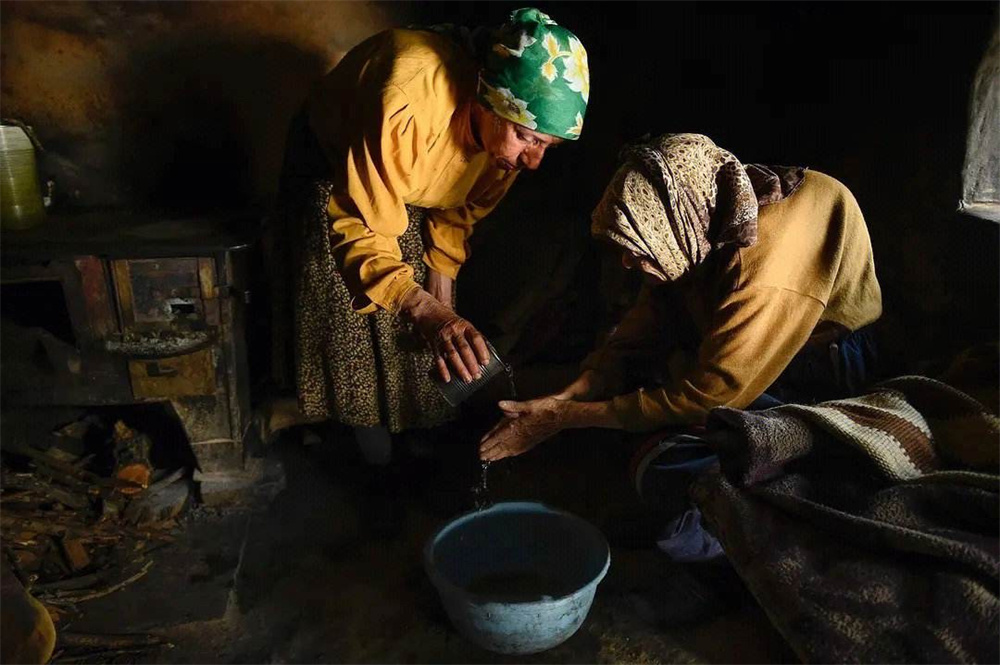
"Honey Land" stills
The Paper : Some documentaries have a lot of material in the early stage, everything is filmed, and everything is expressed in the later stage, but in the end, it is not expressed to the depths of the soul. What suggestions do you have for such films?
Atanas Georgyev : In my master class lectures, I also often mention that for documentary filmmakers, three things are the most important. First, what is this film about? Second, why did you make this film? Third, how to make this film? These three points require particularly clear answers. And it needs to run through the entire shooting process, and you need to keep asking yourself.
The high level of communication is actually condensed. The more focused your focus and the shorter your sentences, the stronger the power of communication, and the most beneficial to the overall production.
Of course, this is not an easy thing to talk about. It may take a year or even longer to think about these three answers.
The answer is often like an ancient Chinese proverb or philosophical thought, which must be something powerful, something that touches the soul, and something you have to do your best to do.
The Paper : The storyline and completeness of "Honey Land" made me think it was a feature film. After some seemingly irrelevant scenes were connected, it produced a different dramatic effect. What do you think of editing a documentary? What's the difference between a feature film and a feature film?
Atanas Georgyev : Works still have a ceiling. Feature films should be shot like documentaries, and documentaries should be shot like feature films, which is generally considered the highest level in the industry. So we will go all out to achieve such an effect.
In fact, for us, compared to feature films, there are indeed great difficulties in shooting documentaries, and it is also difficult to find the location of editing points. In feature films, actors can leave editing points, but ordinary people who shoot do not. Including camera positions, and various on-the-spot changes that are uncontrollable, but we can still create many other ways to switch shots. It is very important for us to be as accurate as possible. The feeling of being able to make a feature film is a challenge for all documentary filmmakers.
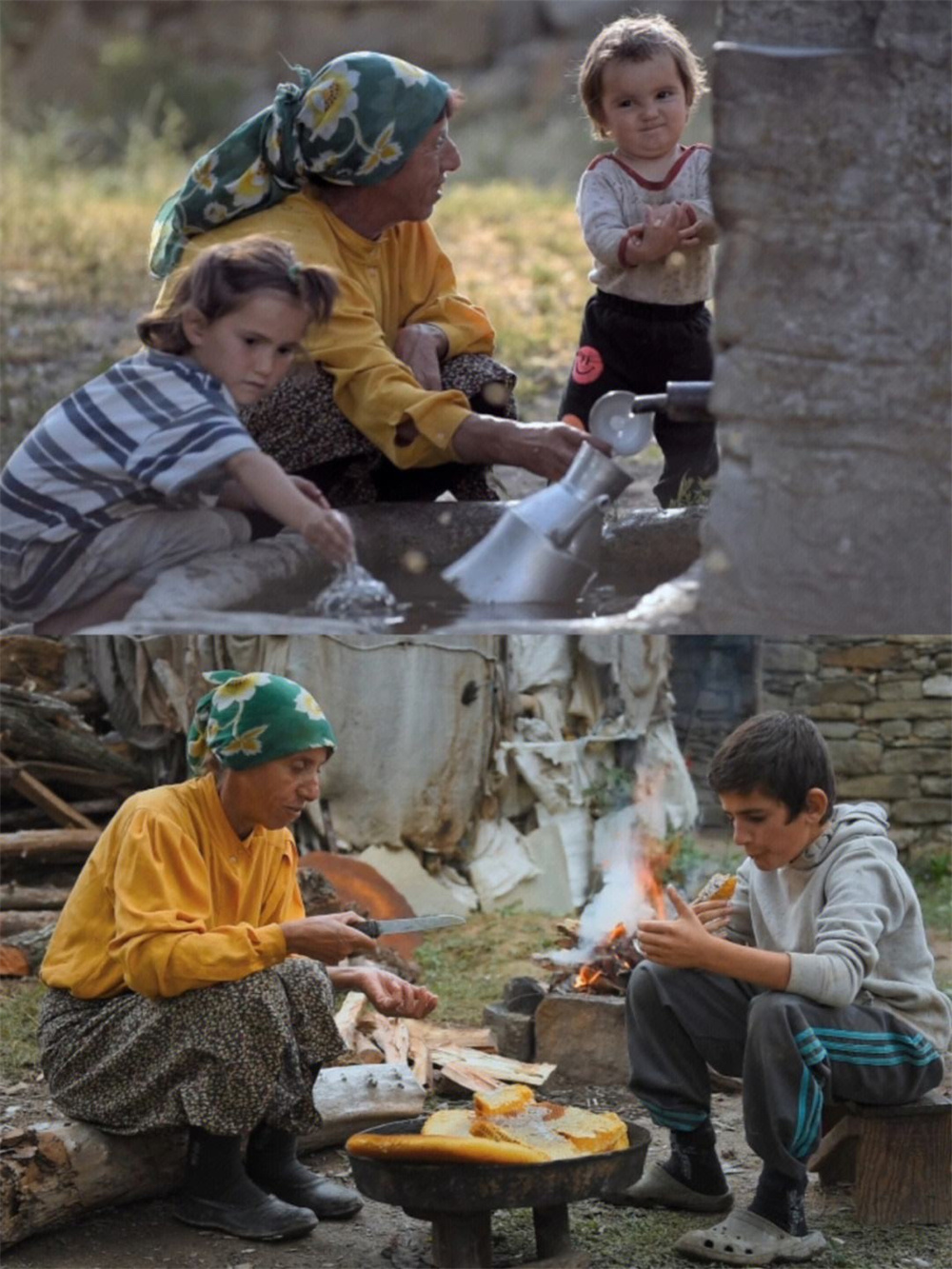
"Honey Land" stills
The Paper : In addition to the story line, the overall emotional rhythm of the characters should be the most difficult to edit. How to control it in the later stage?
Atanas Georgyev : In terms of expressing emotional lines, it is a master challenge for the entire documentary. For documentaries, it may take a lot of effort in the early stage.
For example, when filming "The Land of Honey", the team spent a long time living with the local people and winning their trust. In this case, the shooting effect is the best. Their emotional expression easier to catch. Someone asked me before, are many of the lenses in it designed? I proudly said, "No, it's all captured in nature, it's a purely documentary way of shooting."
In the early stage of shooting, the team needs to find out some local conditions in advance. For example, the heroine’s neighbor’s family is going to move here. This kind of move is seasonal. We already know that they will come, and we will also predict what will happen next after they move here. Their life will give the heroine’s life. What to bring... If you want to predict more clearly and accurately, you must spend more time collecting information in the early stage. Unique story lines and emotional lines must be inseparable from a large amount of information collection.
The Paper : "Editing and reconstruction" is very similar to building Lego. Different people can build different models. What do you think the final texture depends on?
Atanas Georgyev : Is it low concentration or high concentration. I can't stress enough that editing takes a lot of patience, but first it's all about keeping all the material in mind, and then there's the erasing. Choose and try one by one according to the expression of the information we want to convey.
Put the material I have seen before into this scene, and erase it if I think it is inappropriate, until I find the most suitable scene, this is the same action day and night. In editing, cutting and condensing, you will find new problems, and then do it again. Each step is an inspection of the previous step, which is constantly updated and processed, and finally you will get the most satisfactory essence.
The Paper : Why are some documentaries cut longer and longer?
Atanas Georgyev : In the past ten years, digital technology has allowed us to shoot a large amount of material, which is not necessarily a good thing. In the film age and the digital age, when you calculate a movie by the length It still takes the same amount of work when editing in a movie. So like I mentioned earlier, you have to keep asking yourself those three things throughout the process. At least in my opinion, the high level of communication is actually condensed.
The Paper : What was the most difficult problem you encountered when editing?
Atanas Georgyev : Difficult things happen almost every day, lol. The production process of the film is like the kind of masochism being destroyed, it is very painful. Sometimes I wonder what everyone is doing for it, and finally figured it out. Everyone is doing it for the applause of the audience in the cinema at the end. The documentary is definitely not for making money, it is For the moment of applause from the audience. Therefore, if there is no patience and enthusiasm in this industry, the whole process will be very difficult. As an editor, you can’t be lazy. No matter how big the material is, you need to watch it repeatedly in order to remember and create it.
